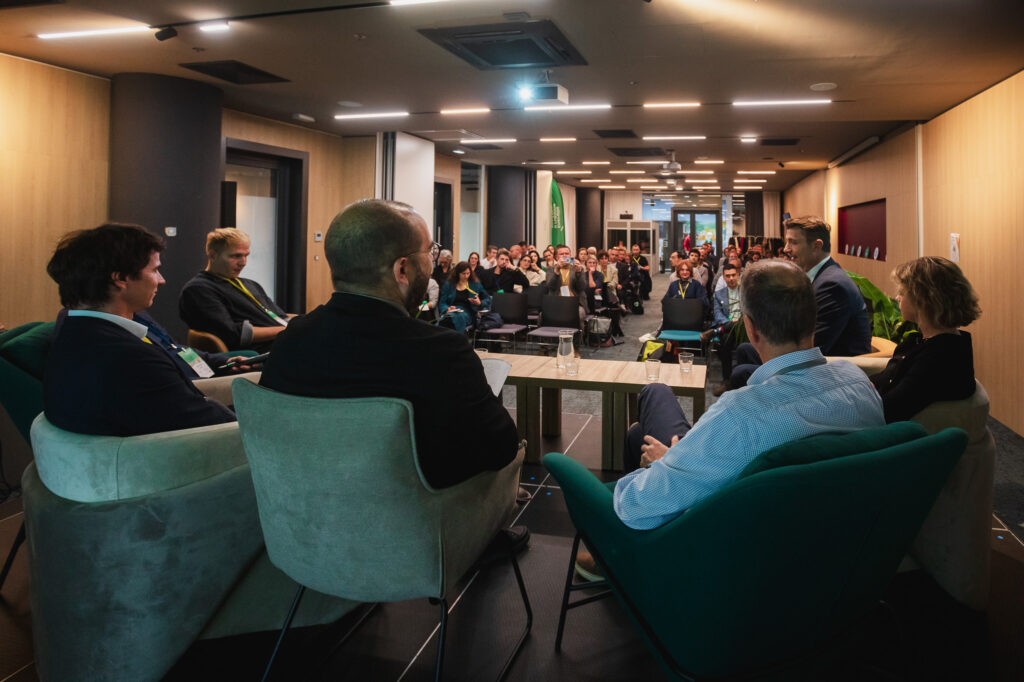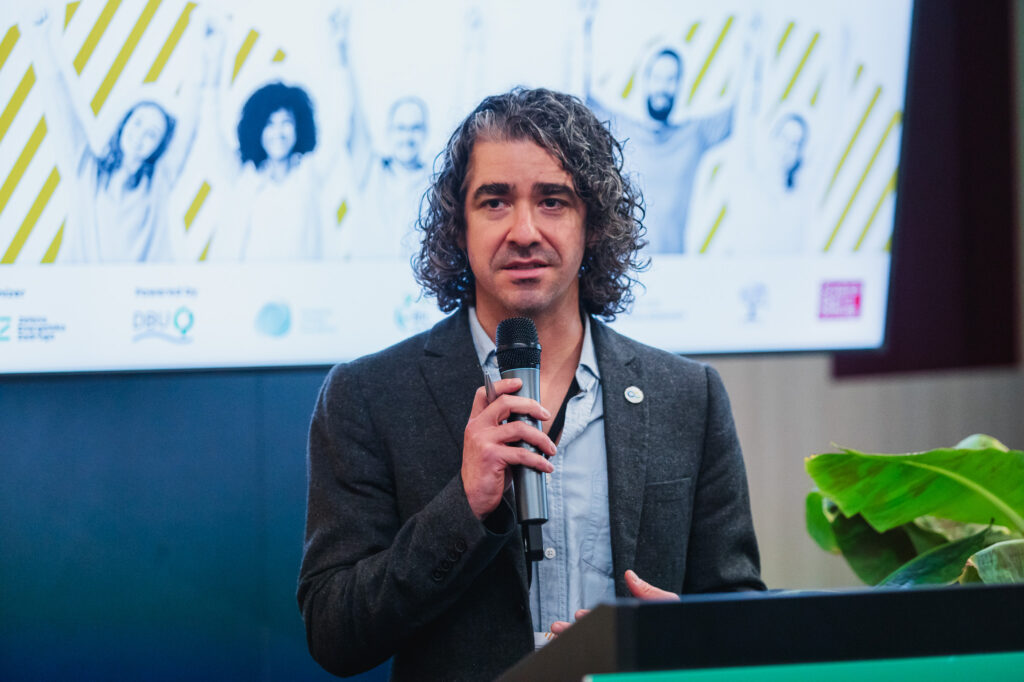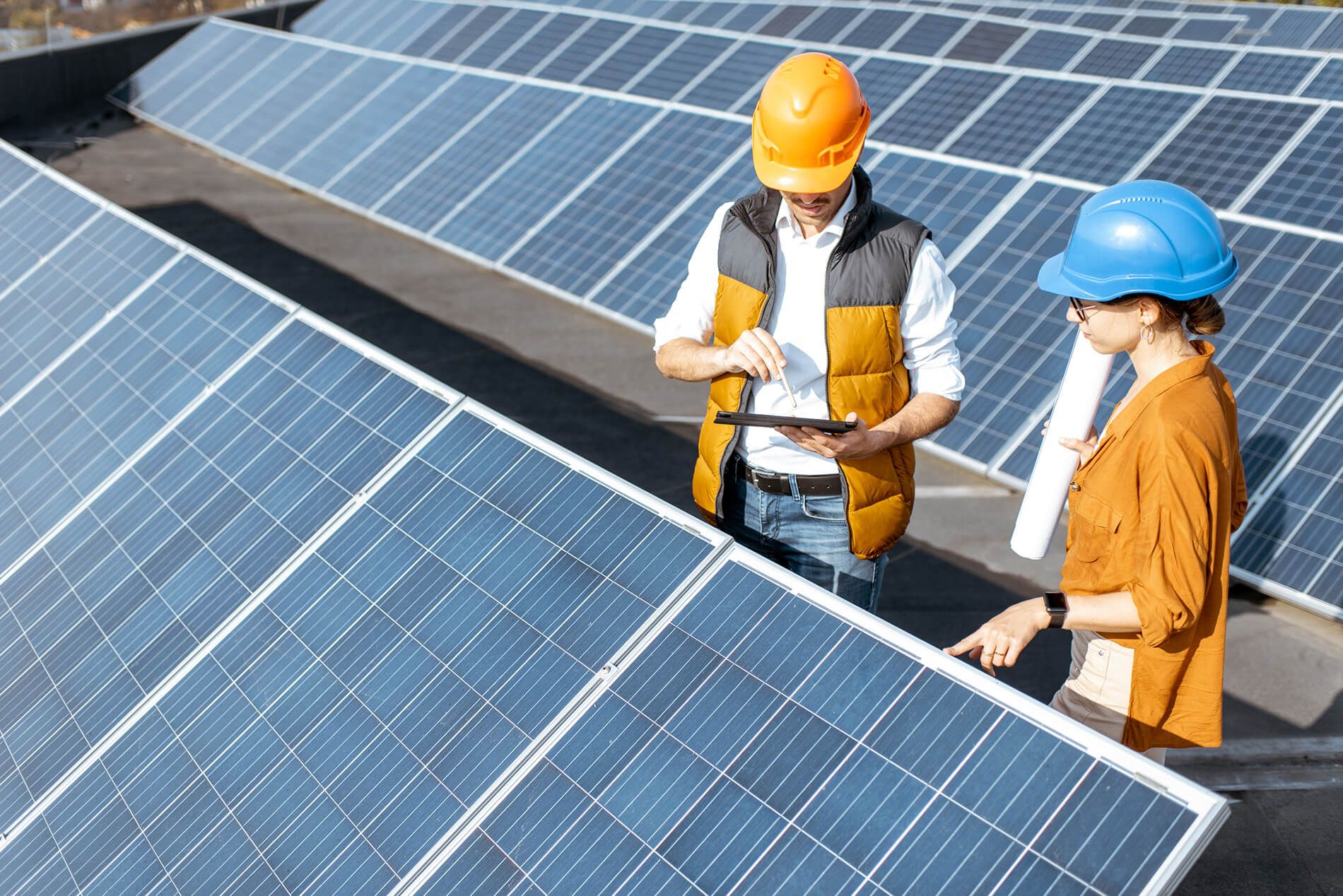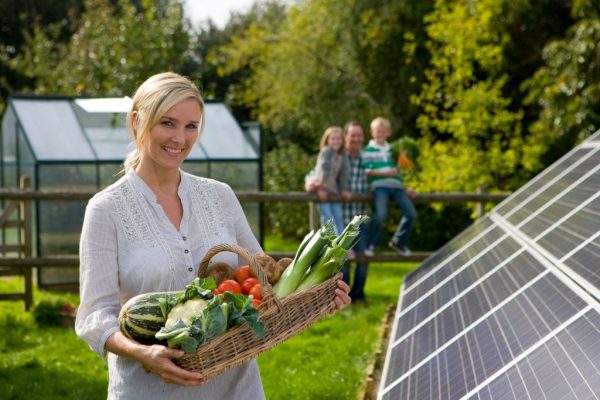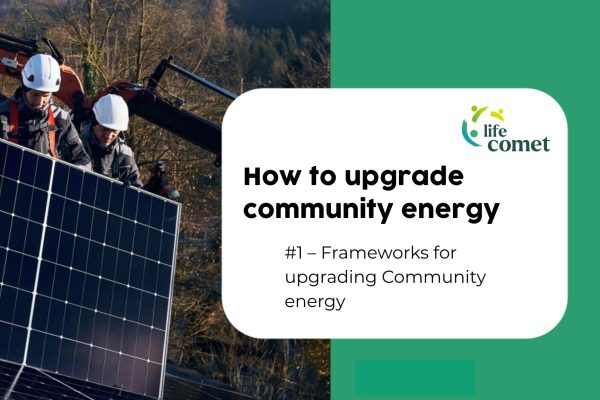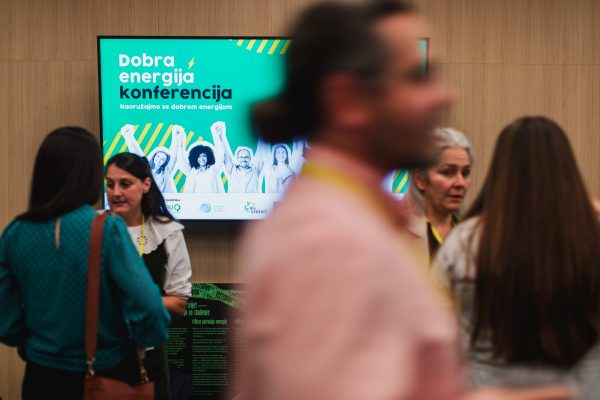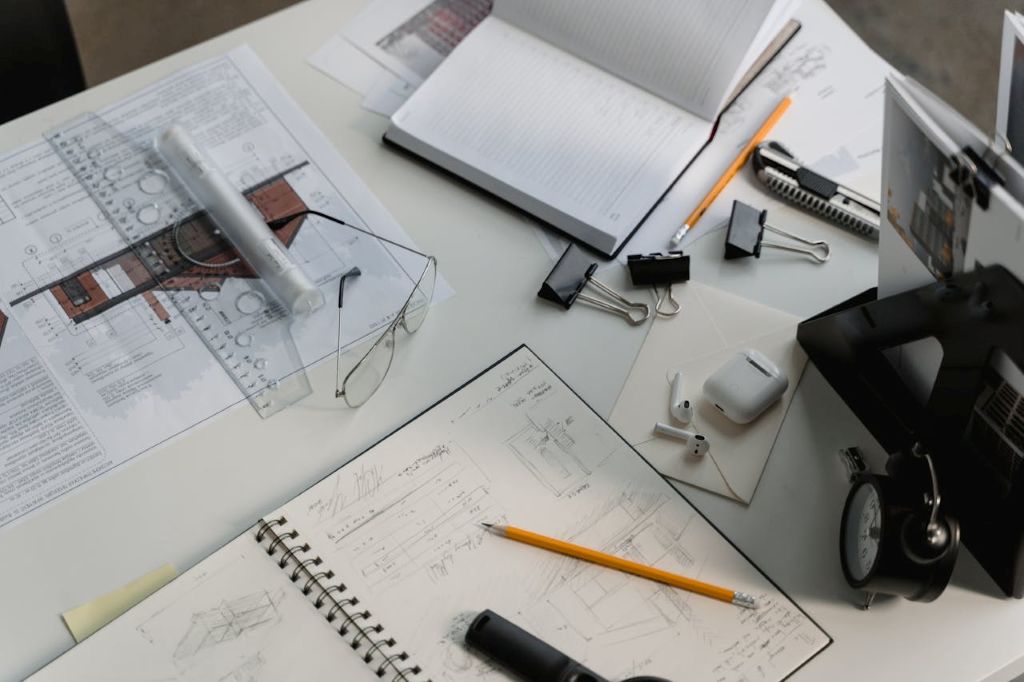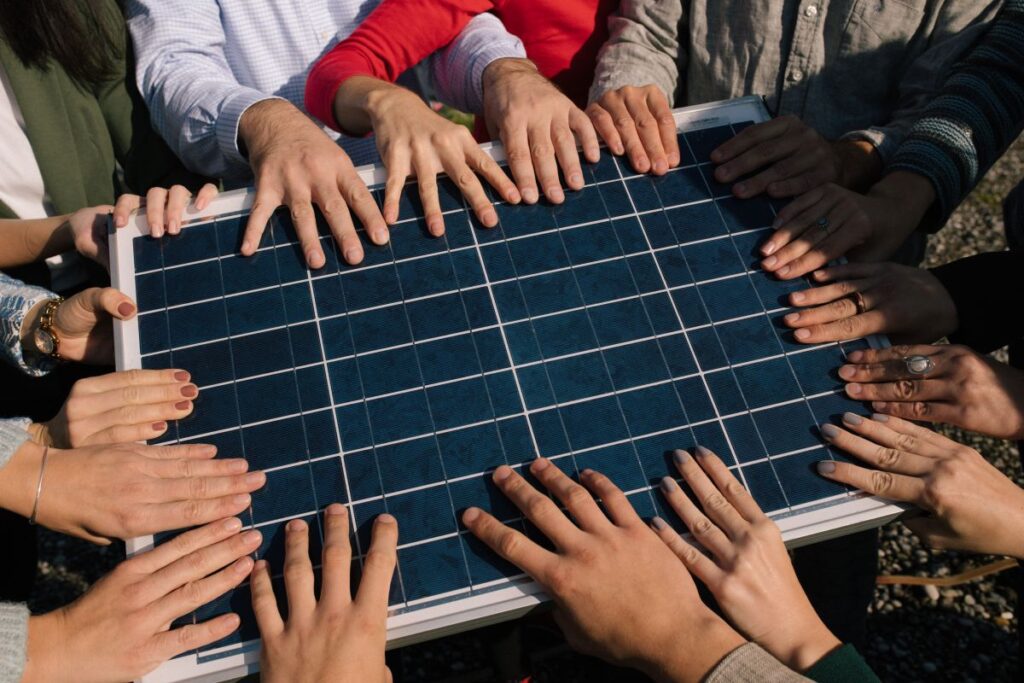Solar or renewable energy that community members produce together is only a tool, which mobilises them around a shared purpose, connects people, and creates additional value for the community.
This message was repeated many times by participants and panelists at the Good Energy Conference, held on 23 October in Zagreb.
The topic was introduced by Josh Roberts, lawyer and public policy advisor at REScoop, the European federation of energy communities, in his keynote speech. Josh highlighted the expectations of the Federation regarding the upcoming EU Citizen Energy Package:
- Implementation and enforcement of EU rules – above all, the original provisions of the Clean Energy Package must be properly applied, and new provisions from the Fit for 55 and REPowerEU initiatives must be effectively implemented.
- Concrete targets – the EU should set targets based on national assessments of potential (most of which have not yet been prepared in the Member States).
- Clarification of concepts – energy communities should be understood as an organisational model and social economy actors; and should be clearly distinguished from technical activities such as energy sharing.
- Promoting local ownership and fair benefit-sharing – to ensure fairness and public acceptance of renewable energy, local ownership through energy communities and direct citizen participation must be incorporated into policies, planning processes, and projects led by private developers.
- Ensuring a level playing field and fair treatment for energy communities – energy communities need financial incentives, capacity-building programmes, access to space (for production and grid connection), appropriate regulation, and targeted support mechanisms.
- Reducing energy poverty and promoting inclusiveness – the Clean Energy Package should include strong measures to address energy poverty, for example through financial mechanisms such as the Social Climate Fund, the use of EU funds (e.g., the Just Transition Fund, European Regional Development Fund), establishing one-stop shops for citizen support, and initiatives to increase citizen awareness.
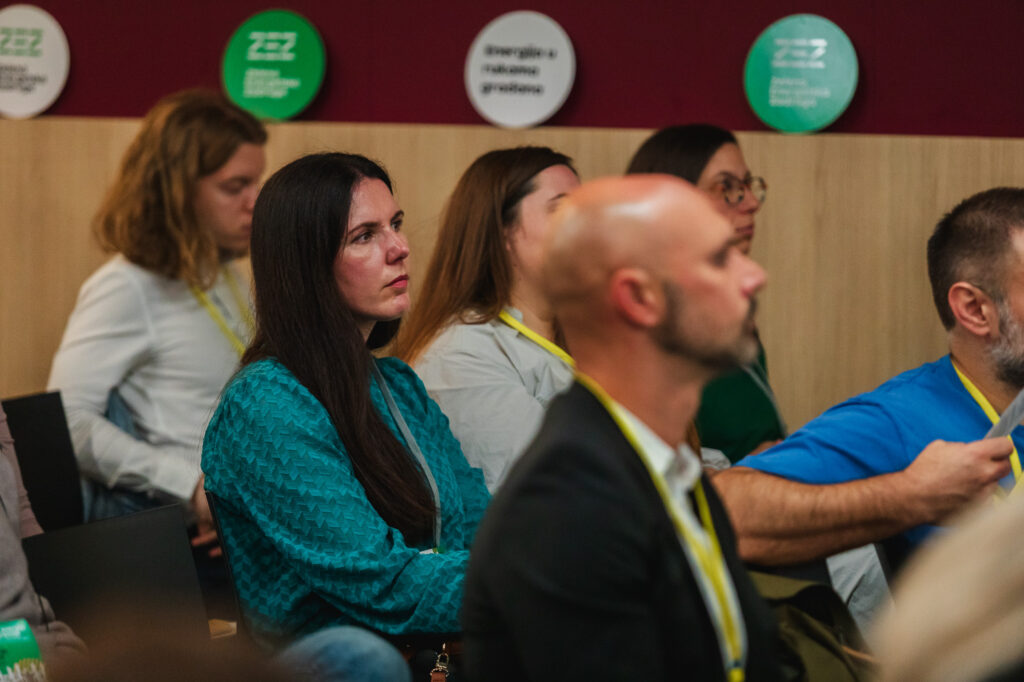
Citizens as Partners in Financing Energy Transition
Everything outlined in the EU Citizen Energy Package is important both in the social and financial context. Because public funding, banks, and governments alone are not enough to finance Europe’s energy transition – citizens play an important role in financing a sustainable energy future.
In Croatia, over the past several years, citizens have invested more than €1.5 million in their own solar power plants through group purchasing processes or collective investments facilitated by the Green Energy Cooperative (ZEZ).
Across Europe, citizen-led initiatives have already mobilised €738 million with the help of financial instruments designed to stimulate and strengthen citizen energy as Community Energy Financing Schemes (CEFS). These figures come from the latest report developed within a project dedicated to this very topic: the financing of community energy.
These include various pilot projects from Croatia, Romania, Germany, Spain, Belgium, France and the Netherlands, demonstrating a diversity of approaches and models – from group investments in rooftop solar, local cooperative heating funds, partnerships with ethical banks, to group-purchasing schemes. In each of these cases, the CEFS instrument helps remove financial barriers, share risk, and combine public funding, ethical bank financing, and citizen contributions.
Together, they demonstrate how well-designed and diverse financial instruments can mobilise significant amounts of capital originating from citizens’ and local communities’ own savings. These citizen-led models and community energy initiatives are far more than just a tool for reducing carbon emissions. They strengthen energy security and independence, keep profits within the local community, and give citizens the opportunity to directly participate in shaping Europe’s energy future. Experts point out that, with the right policies and legislation, such financing schemes could “unlock” billions of euros in citizen investments.
Together, we are far more than a small financial niche. Together, we can more easily and quickly reduce reliance on fossil fuels and significantly decrease our negative impact on the environment and climate. By participating in and implementing community energy projects, all of us can actively contribute to achieving our climate and energy goals, producing good energy, and strengthening our resilience to multiple crises.
Read the full report on financial instruments for community energy here and learn more about the other key messages from the Good Energy Conference and why energy communities are beacons of resilience in this article.
What motivates Josh Roberts to engage in energy communities – find out in the video.
This content was created as part of the activities of the EU project COMET, funded under grant agreement No. 101120519 through the LIFE Programme, and as part of the activities of the EU project “Access to Capital for Citizen Energy – ACCE”, funded by the European Union’s LIFE Programme under grant agreement No. 101077474. The EU LIFE Programme is the EU’s funding instrument for environmental, nature conservation and climate action. The Life COMET project is also co-funded by the Government Office for Associations of the Republic of Croatia.
The views expressed in this text are the sole responsibility of the Green Energy Cooperative (ZEZ) and do not necessarily reflect the views of the European Union or the Office for Associations of the Government of the Republic of Croatia.
Photo credits: Bojan-Haron Markičević
